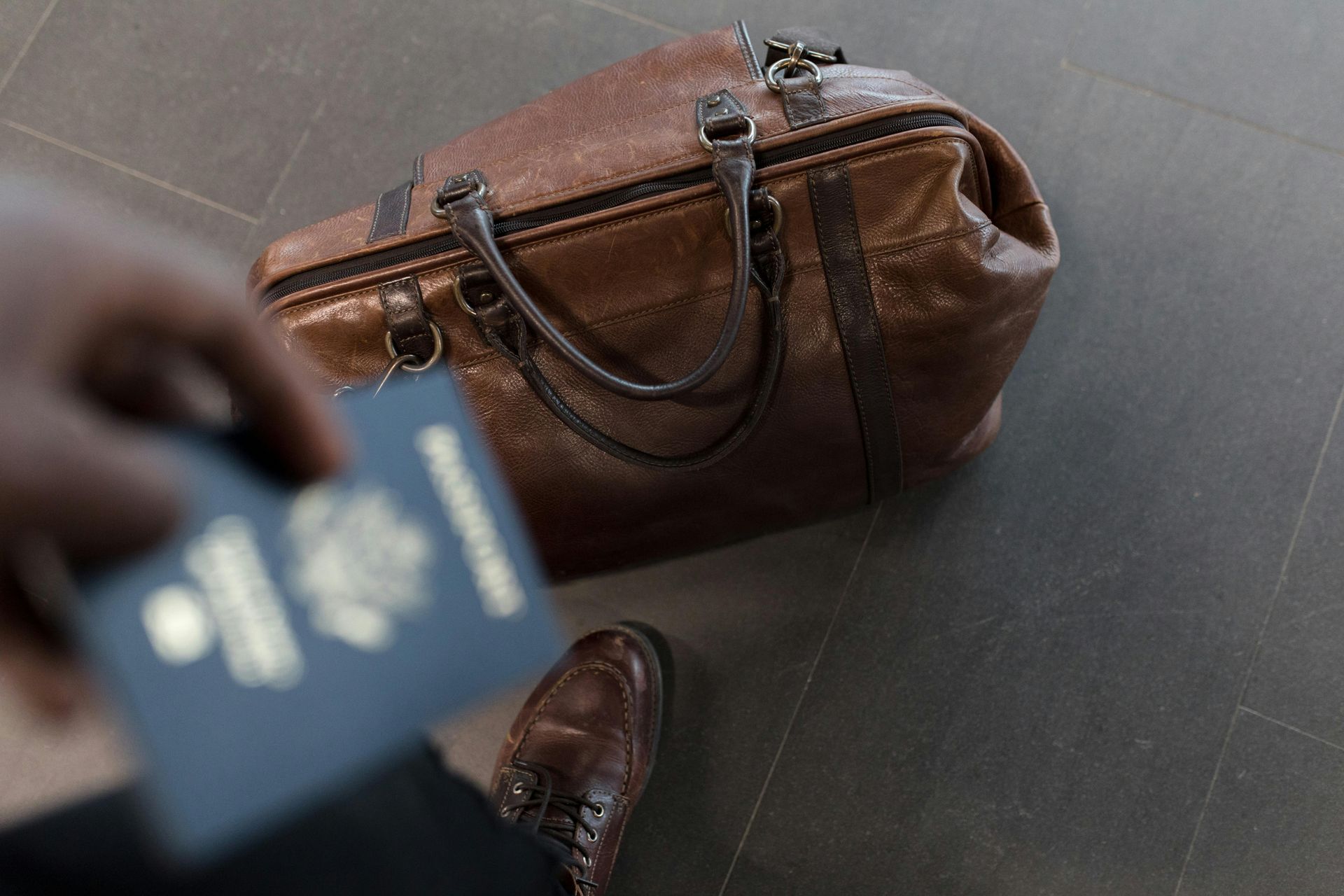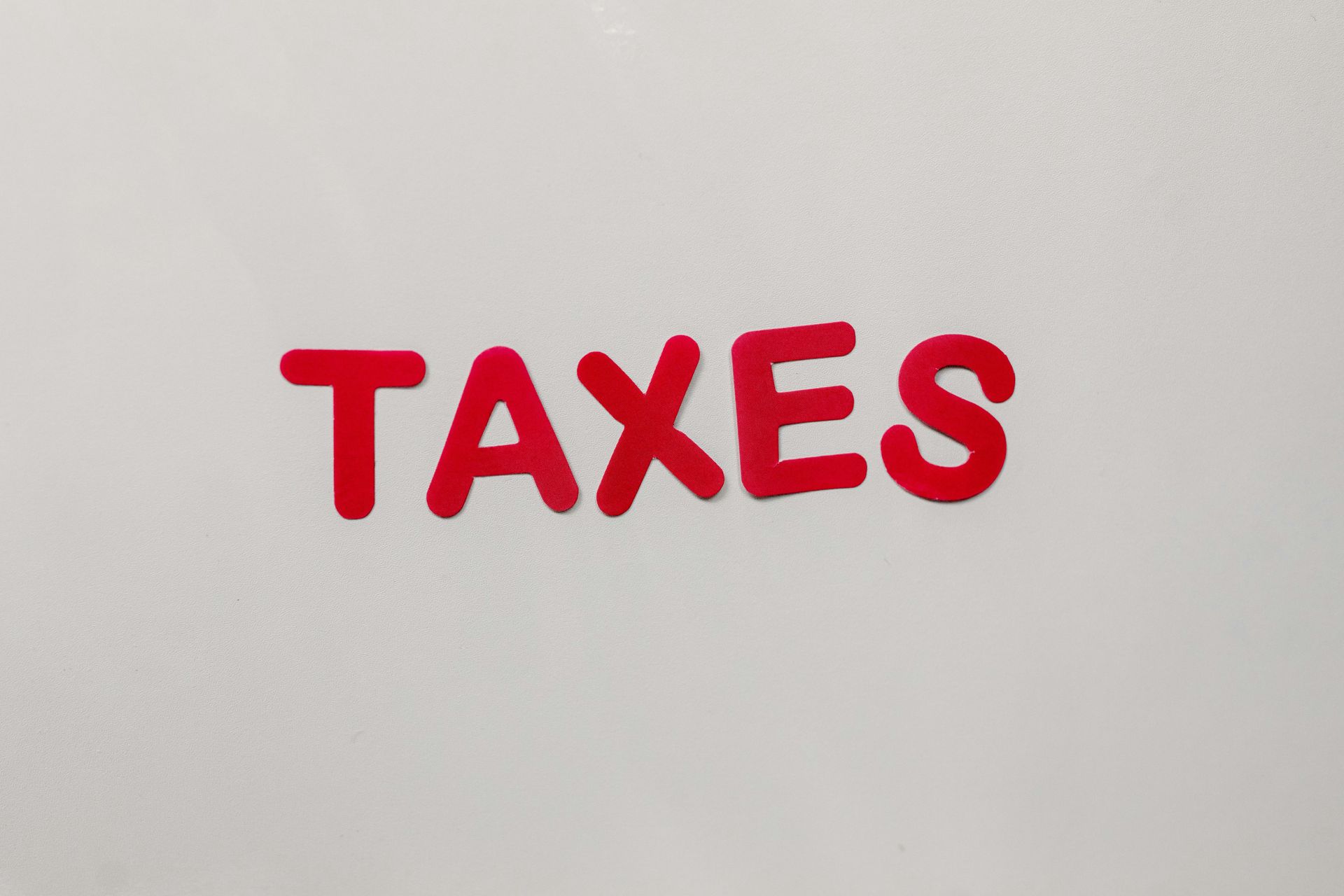BLOG

If you sell a property for more than you paid for it, the difference is liable to Capital Gains Tax (CGT). In 2025/26, you will be liable to 18% CGT when your income and gains fall in the basic rate band. You will be charged up to 24% if it is over the basic rate band. This actually works out as you paying a mixed rate, i.e 18% and 24%, and the difference in these rates can reduce the CGT bill on the sale of assets. Before your CGT exemption is deducted from your gains, any capital losses you’ve made in the same year are deducted alongside any capital losses from earlier tax years (that you haven’t already used against gains). In addition, the first £3,000 of any capital gains you make in 2025/26 is exempt. Remember, this renews every tax year and is the allowance per person, so if the asset you’re selling is joint with your spouse, the exemption increases to £6,000. Before any sale, a married couple or civil partners can change the proportion of the property they own to double up on these annual exemptions, reduce tax rates and use available capital losses to minimize the tax payable on gains from property. This can get complicated, give the team at Rustrick Accountants a call today to chat through things on 01622 738165 and see if you can save today!

MRC is now demanding that small companies and their owners will have to report all income; not just a single total figure for all dividend income. If you receive dividends from a close company in your tax return for 2025/26, you must indicate whether you were a director of it at any point in the tax year and you must now provide the company’s full name and registration number. You must also disclose details of the director’s highest percentage of share capital held in the year. Directors are not limited to just those registered at Companies House, it also includes shadow directors and if you control more than 20% of the company’s ordinary share capital. From 6th April 2025, directors of close companies must make sure they are making detailed records of dividends, changes to the company’s shareholdings and the rights attaching to every class of issued shares. If these details aren’t accurate you may face a penalty of £60 for each error. If you have alphabet shares or if your class rights/shareholdings have changed, give us a call on 01622 738165 as this could complicate things.

Interest rates have risen and the personal savings allowance (PSA), the amount on which 0% tax applies to savings income, has frozen at £1,000 and £500 per tax year for basic rate and higher rates. If in 2023/24 you received interest exceeding the PSA, you don’t normally submit a self-assessment tax return, you haven’t received a P800, you should contact HMRC now to notify them you may owe tax. This also applies for 2024/25, but you have until 5th October 2025 to tell HMRC.

A trivial benefit is something that costs the employer little, which they give to their employees as a perk of their job. A perk counts as trivial and is exempt from income tax and NI as long as it costs the employer no more than £50 and meets other conditions. This £50 includes both the price of the item/service and all the related costs. If a gift is shared by employees and you can’t work out the exact cost, you can use the average to determine if the exemption applies. It would not be counted as trivial (even if it is less than £50) if it is part of a salary sacrifice, paid in cash or a voucher that can be converted to cash, part of the employee’s contractual earnings or if it is in recognition for services performed as part of employment duties. The trivial benefits exemption exists to allow employers to reward employees tax and NI free and to reduce paperwork and admin for both employers and HMRC. So give us a call on 01622 738165 and let us help you today!

Did you know that contributing to a registered pension scheme qualifies for income tax relief? You can pay into a workplace pension or set up your own, but either way you will be entitled to relief dependent on the rate of income tax you pay. If you are a higher (40%) or additional (45%) rate taxpayer you can claim further income tax relief on personal pension contributions (this includes contributions to workplace pension that is deducted from your pay!). If you are not in self-assessment (only have PAYE income) you can claim this extra tax relief through HMRC’s new online form. You can access this by logging into the Government Gateway and then supply proof that you’ve paid contributions (your pension company can give you this). HMRC will then make an adjustment to your tax code so you receive the income tax relief. If you are registered for self-assessment, you can simply claim it on your tax return. Remember you will have to wait until the end of the year to do this! If you have PAYE income, you can get the tax relief faster by logging into your HMRC personal tax account and updating your tax code (remember to report the pension contributions on your tax return!). Not sure if you are entitled to the extra tax relief or how to get it? Give us a call on 01622 738165 and the team will help you out.

High Income Child Benefit Charge (HICBC) uses the income tax system to get back child benefits from couples when one or both of them have an annual income of over £60,000. HMRC has announced that from August 2025 if you pay tax through PAYE and are liable to HICBC you have to report it through a new online service. So if you were previously filling out a self-assessment form, ask HMRC to remove you from the self-assessment system and collect the HICBC from your PAYE income. This is a new system so there is a high risk of over or underpayments and will be under review for a period of time. Not sure how this will affect you? Give us a call on 01622 738165 and we can talk you through the change.

Can you reduce your tax and NI bill if you give your spouse shares in your company? Usually this would be the case, however it isn’t always guaranteed! If your spouse has other income that places them in a higher tax bracket it would increase the bill! To get around this you can use alphabet shares. Alphabet shares are “ordinary shares” but they have a different designation. For example ordinary A shares, ordinary B shares etc. This means that the company can declare a dividend at one rate for A shares and another for B shares. So if one shareholder in a company has more income than another, the first shareholder can be paid a lower dividend to keep their income within the income tax basic rate band. These shares must be issued correctly. They must be sent to Companies House within 15 days with a Form SH01 within 30 days of issuing the new shares. HMRC aren’t always a big fan of alphabet shares, so make sure your paperwork is in order when declaring a dividend- it will either be a director’s resolution for an interim dividend or a shareholders’ resolution for a final dividend. First time you have heard of alphabet shares? Worried about issuing them yourself? Give us a call on 01622 738165 and Rustrick Accountants will sort it out for you.

The government wants to build over 1m new homes by 2029. They need land to do this and have decided to start to clean up brownfield sites. But where does Land Remediation Relief (LRR) come into this? At the moment, the government is deciding whether LRR should be continued, so if you do qualify- time could be of the essence! LRR is a corporation tax (CT) deduction of 150% when a company cleans up contaminated land and buildings in which they have a major interest (freehold/leasehold interest of at least seven years). The CT relief depends on whether the company holds the land as stock or a capital asset and which band of CT is applicable. Loss-making companies can only access a maximum tax credit of 24% of the LRR spend. But watch out for the exclusions! Contamination due to living organisms, air or water does not qualify (apart from Japanese knotweed, radon and arsenic). This means that any costs relating to drainage, mine shaft grouting and protection of land from soil, gases or flood waters is excluded. Any contributor to the contamination (including a connected party!) is also ineligible, this also includes any failure to act (even if the pollution was accidental!). As long as the work either prevents or mitigates the effects of harm (this could be removal, containment or treatment of contamination) there is no “prescribed” method of how to do it. However, only the additional costs incurred to carry out the remediation work will qualify for CT relief. Any costs must be borne by the company and not subsidised (i.e land was discounted due to the contamination). LRR offers a maximum tax relief of 37.5% of the qualifying spend (including capital costs) but it must be submitted within two years of the accounting period end. This is a tricky topic so give us a call on 01622 738165 to make sure it is done properly!

Should you be deducting tax and NI from your employees’ travel expenses? You must decide if job-related expenses are exempt from tax and NI contributions. If they are, the expense can be paid or reimbursed to an employee without reporting it to HMRC. If it isn’t exempt, you must treat the payment as either earnings or a benefit in kind. For a travel expense to be exempt, it must happen whilst the employee is doing their job or is visiting a location that isn’t their normal place of work for the purpose of performing their job. If the employee’s journey is between their home and their permanent workplace, it is called ordinary commuting and if you pay the costs, they are taxable and liable to NI. This can get a bit confusing, get in contact with us on 01622 738165 and we can help you decide what the best course of action is for you.

You can reduce your capital gains tax liability by using proceeds from the sale of one asset to reinvest in the purchase of a new asset- this is called Rollover Relief. To qualify for Rollover Relief, you have to get rid of an old asset (which was used only for trade purposes) and then get a new asset (that will only be used for trade purposes). If you are a sole trader, you can use the new asset for a different trade but there must not be a gap longer than three years between these trades. Qualifying assets include buildings, land, plant and machinery used for your trade, but will not include shares and securities. Rollover Relief can be claimed if the proceeds of the old asset are used to enhance the value of other trade assets immediately, or if you use the proceeds to acquire a further interest in another asset (that is already used for trading purposes). You will get the full Rollover Relief if you reinvest all of the proceeds of your asset sales, if you only partially reinvest, then the relief will be proportionate. If you reinvest in a depreciating asset (an asset with a predictable life of 60 years or less e.g. machinery) there will be special rules. Any rolled-over gain from the depreciating asset is not deducted from the cost of the replacement asset, instead it is frozen until the replacement asset is no longer being used for trade purposes, or ten years from the acquisition of the depreciating asset. The new asset must be acquired 12 months before the disposal of the old asset or three years after the disposal. A claim has to be made within four years after the end of the tax year when the disposal happened or the new asset was acquired. Give us a call on 01622 738165 and we can help you decide if Rollover Relief is right for you!

Did you know that the Employment Allowance (EA) has more than doubled? It now stands at £10,500! EA is the amount that employers can deduct from their annual NI bill. But why has it increased so drastically? Basically it is to soften the blow of the increase to employers’ NI rate (to 15%) and the lowering of the point at which employers must start paying NI on an employee’s salary (£5,000 per annum). Watch out! Employers may be excluded from entitlement to EA if the company only has one employee who is also a director and the only person paid by the company. It doesn’t matter how many shareholders/directors a company has, what matters is who is paid above the secondary earnings threshold. So how do you get around this? Simply pay another person just enough to prevent the exclusion from applying to the company! Even if this is just for one week in a tax year, you will qualify for the full £10,500! It is a simple solution and a very easy thing to capitalise on! Make sure you aren’t missing out by giving us a call today on 01622 738165 - we will be more than happy to help you.

When spouses own a property together, they are taxed 50% equally on any income that may arise. However, when they own property as tenants in common and in unequal shares, they can elect for the income to be split for tax purposes like their ownership- to do this you use a Form 17 (watch out- it can’t be split differently to the share balance!). After a Form 17 election has been made, it has to get to HMRC within 60 days of the date of the last signature. From this date, the income is split according to the shares, anything before this date is treated as arising equally. This election is useful because you get a lower tax bill- you won’t be taxed on 50% of the income! For example, Bob has a 95% share and Bill has a 5% share. They make £10,000 rental profit a year and Bob has no other income whilst Bill is a higher rate taxpayer. Bob will be taxed on 95% of the profits (£9,500) which would be tax-free (it is under his personal allowance) whilst Bill is only taxed on 5% (£500) which is only £200. They are both saving tax! This can be hard to get your head around- give us a call on 01622 738165 and let us work out the best solution for you!

The way that expenses relating to business premises are grouped can often cause problems with HMRC if they are found out to be non-deductible for tax purposes. If you take the correct steps to begin with it makes everything a lot smoother! Before recording any property expenditure, first identify if it is a revenue cost (day-to-day expense) like decoration or maintenance or a capital cost. A capital cost could be divided into two sections: 1. Acquisition/Improvement of building or structure 2. Plant/machinery/ equipment that is permanently attached to the building (lights, water system etc) Remember, if you do your own bookkeeping there is a much higher risk of errors- so double check everything! Revenue costs: if you incur a repair or maintenance cost relating to the premise, a tax deduction for the expense is allowed in the same way that other revenue expenditure (energy bills, staff costs and overheads) are recorded in the profit and loss account. Capital costs: these tend to be extensive and go beyond simple repairs. Capital expenditure should be recorded as a fixed asset on the business’ balance sheet. Hidden capital costs: there can be costs that are normally treated as revenue but can also be related to capital improvements. For example, you may have changed your office into an open plan structure (capital) but now need to paint the walls. This cost is related to capital and not revenue! Timing also comes into play for determining if expenses are capital or revenue. If a building is acquired in a condition that stops it from being used for the purpose it was intended for, expenses incurred to make it fit for use are usually capital even if they fall under the revenue category. Categorization is not always simple and luckily HMRC will accept a common-sense approach to it! No deduction from profits is allowed for capital expenditure if it has been incurred on or after 29 October 2018. However, it may qualify for a special capital allowance deduction known as the structures and buildings allowance (SBA). The tax relief for SBAs is equal to 3% of the costs per year (2% until April 2020). If you need help identifying what is a hidden capital cost and whether your capital costs may be eligible for the SBA, give us a call on 01622 738165- we are here to give you a helping hand!

Direct tax rules are changing in April 2025 and more vehicles are being classed as cars rather than commercial vehicles. VAT is not claimable when buying a new car, however it can be claimed when a car will be used as a tool of trade (e.g. a car hire business, driving school or taxi firm). Input tax can also be claimed on a genuine car that is used for carpooling and made available for use by all staff and not kept overnight at an employee’s home. Input tax can be claimed on a purchase of a commercial vehicle which has three/four wheels (no motorbike!), has been constructed solely/mainly to carry passengers and has roofed accommodation to the rear of the driver’s seat with side windows. Put simply, if it can carry either only one passenger, or over twelve passengers it is not a car and so it does not count. Like most things, there are exceptions to this rule. If the vehicle has an unladen weight of three tonnes or more it will always be classed as a commercial vehicle. Caravans, ambulances and prison vans are commercial vehicles. If you are planning to purchase a car, van or combi-van, it is worth checking out if it is a commercial vehicle. Get in contact today on 01622 738165 and we can advise you on what would be best for you and your business.

Have you noticed that your company has temporarily exceeded the VAT registration threshold? You know that it is unlikely you will exceed the threshold in the foreseeable future, can you just ignore it? As a business owner, you can voluntarily register for VAT as soon as you start or intend to start trading. You have to register when your sales turnover exceeds the registration threshold (£90,000 in any twelve-month period). For VAT purposes, your turnover includes all businesses you own, so if you have two companies, it will be the combined turnover compared with the threshold. You can ask HMRC for an exception from registration by providing evidence that the threshold was only exceeded temporarily. You must be able to convince HMRC that your turnover is not expected to exceed the deregistration threshold of £88,000 at any time in the twelve months following the date on which the registration threshold was exceeded. If you fail to apply for the exception, HMRC may assess you for VAT on all sales from the date you should have registered! So, if your turnover temporarily exceeds the limit, you should apply for registration and ask for the exception by answering 10 questions on the application form. The deadline is often missed but it is not a huge problem. You can make a late application but you will need an explanation with your application explaining how, at the time the registration threshold was exceeded, you could have known that your future turnover would be less than the deregistration threshold. If you need help with this explanation or need further information, give us a call on 01622 738165 and the team will be happy to help.



